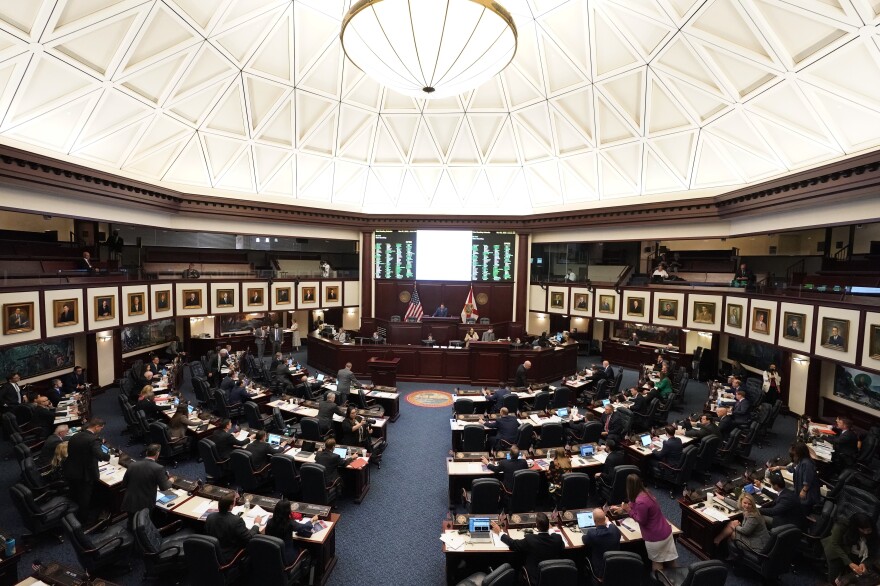The 2024 legislative session ended Friday with an annual hanky-drop ceremony in the rotunda between the House and Senate chambers. Here are snapshots of 10 big issues from the session:
BUDGET: Lawmakers passed a $117.46 billion budget for the 2024-2025 fiscal year, which will start July 1. The budget includes such things as increased funding for public schools and pay raises for state employees. A related tax package includes a series of sales-tax “holidays.”
DOZIER STUDENTS: Decades after they suffered abuse, former students of the shuttered Arthur G. Dozier School for Boys in Marianna and another reform school in Okeechobee will receive compensation from the state under a $20 million program approved by lawmakers.
EDUCATION: In a fiercely debated issue, lawmakers passed a measure designed to keep “identity politics” out of teacher preparation programs. They also approved a bill that would allow volunteer chaplains in schools and a plan to ease regulations on school districts.
HEALTH CARE: Senate President Kathleen Passidomo made a priority of passing a wide-ranging plan that includes trying to increase the number of doctors in the state and expand access to care. Supporters say it will help meet health-care needs as the population grows.
HEMP: Lawmakers passed a heavily debated measure aimed at outlawing euphoria-inducing hemp products sold at shops throughout the state, with opponents arguing the bill could shutter small businesses and eliminate thousands of jobs.
HOMELESS: Lawmakers passed a controversial plan that would bar cities and counties from allowing homeless people to sleep at places such as public buildings and in rights of way. Local governments could designate sites for sleeping or camping if they meet certain standards.
INSURANCE: After making major changes over the past two years, lawmakers took limited steps to address property-insurance problems. That included a bill that could lead to second homes exiting the state’s Citizens Property Insurance Corp. and moving to private carriers.
SOCIAL MEDIA: In perhaps the highest-profile issue of the session, lawmakers passed a plan aimed at keeping children under age 16 off social media. House Speaker Paul Renner made a priority of the issue, saying that social media harms children’s mental health.
TEEN WORKERS: Lawmakers passed a bill that would loosen work restrictions on 16- and 17-year-old youths. For example, it would maintain a 30-hour-a-week limit for the teens when school is in session but would allow parents or school superintendents to waive the limit.
- VACATION RENTALS: After years of trying to reach a deal on the thorny issue, lawmakers passed a bill about regulating vacation rental properties. The bill includes preempting regulation to the state, while local governments could have registration programs.




